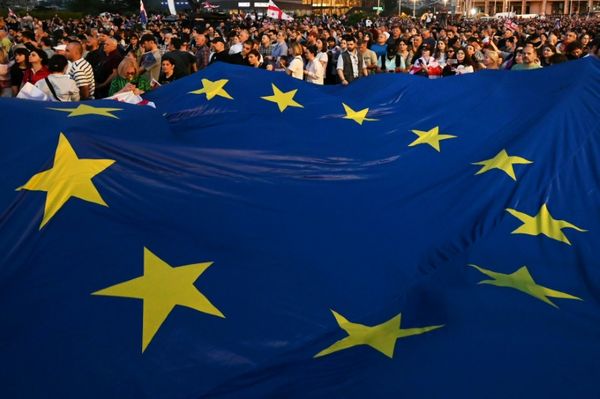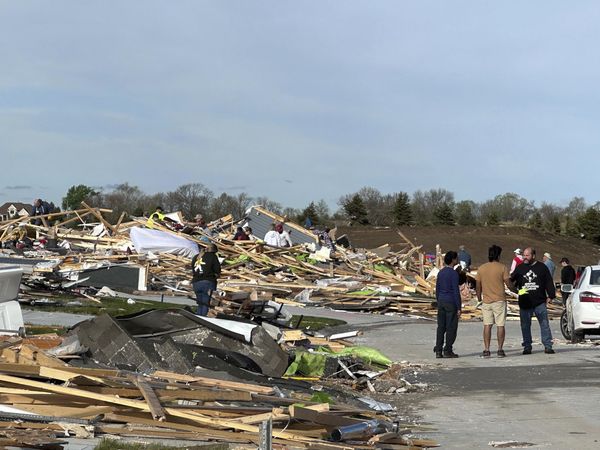
The government has said it will rush “anti-doxxing” legislation into place, after the outing of the identities of a WhatsApp group of “creatives” discussing responses to pro-Palestinian activism. The prime minister says the group was outed merely because they were Jewish. “What they have in common, though, is the fact that they’re members of the Jewish community.”
Nine newspapers have led strongly with the perspective of the outed “creatives”. Today, senior press gallery journalist David Crowe wrote “the individuals had joined a WhatsApp group that was not heavily political and sought to provide support to each other because of the rise of anti-Semitism”.
This is at best an incomplete description, lacking a crucial detail. The group was started by writer Lee Kofman in order to collectively write an open letter expressing “a call for empathy and humanity in the face of profound collective grief”, share concerns about rising anti-Semitism, and provide solidarity for those who felt ostracised by their peers. But as time went on, and hundreds of people were added to the group, discussions kicked off about coordinating pro-Israel social media campaigns. There were complaints about the extensive “anti-Semitism” of the Australian media. There were efforts to coordinate a complaints campaign against Overland and one of its co-editors, Jonathan Dunk.
Some in the group also discussed ways of targeting pro-Palestinian figures Clementine Ford and Lauren Dubois via their publisher, Allen & Unwin. “Give me a rundown on whether the group has tackled Clementine and Lauren Dubois in particular,” one poster said, “and where those efforts are at? I’d love to coordinate some kind of collective effort — maybe combining contact with the lawyer group to get a cease and desist/legal letter with all our signatures and then going to their publishers with that.” Author Danielle Binks was also discussed as a possible target, as was SBS journalist Nadine Chemali.
Those working to damage people professionally were clearly only a minority of the group. Many — perhaps most — of the members now outed may not have supported, or perhaps not even been aware, of the plans to destroy the careers of women deemed “anti-Semitic” or “anti-Zionist”. Many in the group were added by others, yet found their names revealed online anyway as if they were collaborating with those bent on damaging careers. Those people are plainly victims of “doxxing”. But to portray the group as merely an innocuous support mechanism is misleading.
“Doxxing” is a highly subjective term. When Nine newspapers revealed personal details of hitherto anonymous neo-Nazis in an excellent investigation of violent extremist white supremacist groups in 2021, there were no complaints then about them “doxxing” people regarded as deserving of exposure (similarly, there’s been minimal criticism of NSW Premier Chris Minns for threatening to “unmask” neo-Nazis parading around Sydney). Nor was there public outcry when the same newspaper revealed the WhatsApp messages of the “Lawyers for Israel” WhatsApp group lobbying senior ABC figures to sack Antoinette Lattouf.
Indeed, one of the key goals of journalism is, surely, sharing information about those engaged in what someone regards as malicious activity so they can be held to public account. Beyond those who break the law, this extends to those who seek to influence policymakers, or misuse public funding, or abuse public office, or threaten and intimidate others.
The government has already flagged there’ll be a carve-out in its new laws for journalists — though Attorney-General Mark Dreyfus today was unclear when asked about Nine’s publication of the Lawyers for Israel messages. So doxxing will be okay when newspapers do it? But what about the woman who complained about sexual harassment by Barnaby Joyce (complaints Joyce denies), who was outed against her wishes by The Australian? Or former federal Liberal MP Lucy Wicks, who was exposed as the complainant against a Liberal MP by 2GB against her wishes?
“I’m not in the business of suppressing information,” Wicks’ doxxer, Ben Fordham, proudly said at the time.
The steady drip of revelations from Brittany Higgins’ texts by The Australian was another form of doxxing, designed to humiliate and publicly punish her. And The Canberra Times had no problem exposing the personal financial details of Andie Fox, illegally released to a blogger by robodebt bureaucrats, after she publicly criticised the scheme.
Would the government be rushing new laws into place if a pro-Palestinian WhatsApp group had its details leaked? It’s easier to envisage The Australian running the names on its front page and devoting tens of thousands of words to dissecting everything they’d ever said or done.
So this is not really about using information, but rather about who should have the power to use it.
At the heart of much of the pro-Israeli response to criticism of that country’s military operations in Gaza is a reflexive resort to power — power intended to silence criticism. Minns responded to pro-Palestinian protests by promising to ban them, gave NSW Police more power to prosecute “hate speech”, promised to toughen laws, and attacked his own MPs for criticising Israel. Media companies have censored journalists who called for balance in coverage. The ABC allegedly sacked Antoinette Lattouf for a social media post of material the ABC itself reported on, in response to a coordinated campaign by a group that is explicitly committed to influencing Australia in the interests of a foreign country.
Who has the power here, and at whom is its exercise directed? Prime ministers, premiers, politicians, media executives, well-connected lobbyists who can contact and influence senior ABC figures — they have the power. And its exercise is directed entirely at those who advocate for Palestinians, at those who can’t text Ita Buttrose and get a response, who don’t have a premier promising to protect them from “hate speech”, who don’t have a prime minister and journalists misrepresenting their opponents for them.







